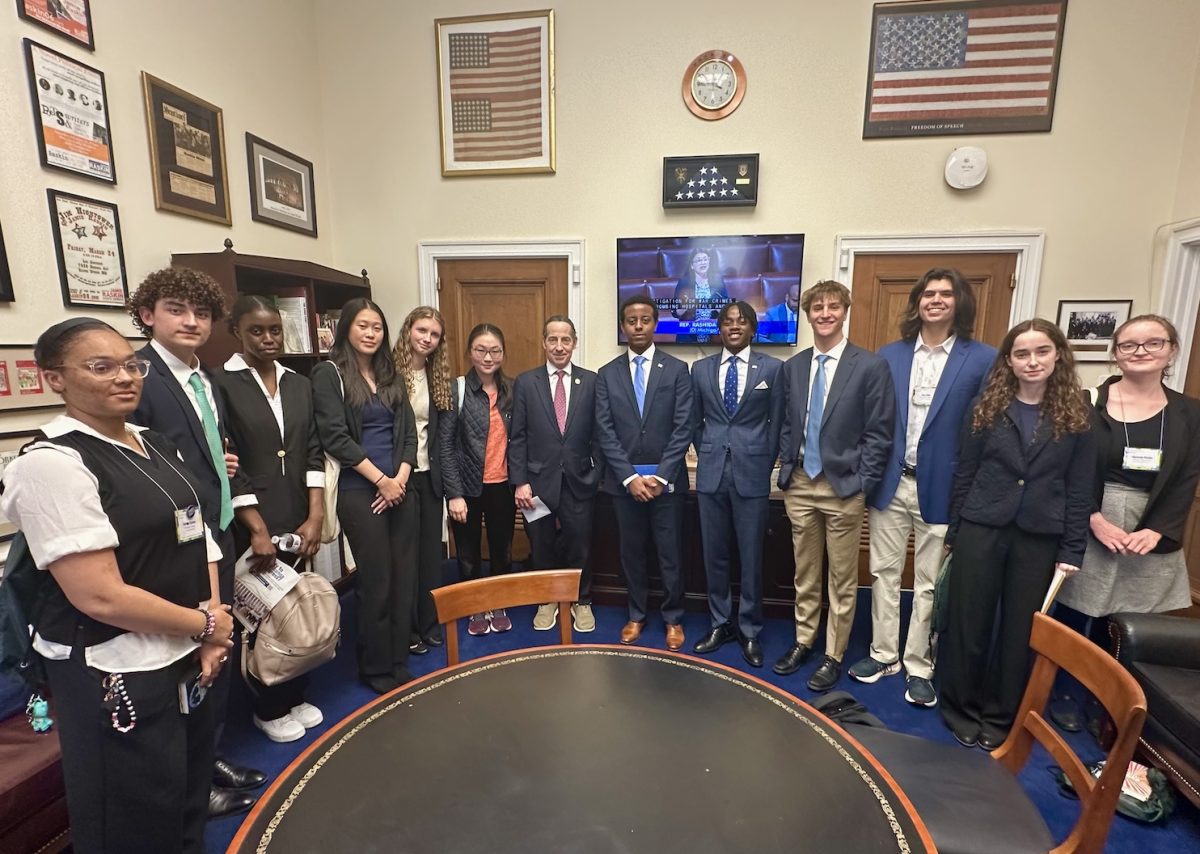“Kinship” Exhibit Explores the Nature of Human Relationships
On Oct. 28, the National Portrait Gallery debuted its new “Kinship” exhibit, displaying artwork and photographs from eight contemporary artists centered around the theme of interpersonal relationships. Through photography, illustration, sculpture and performance, the collection strives to encompass how “interpersonal relationships endure and change, and how kinship, by its very nature, embraces contradictions,” according to a press release. “Kinship” will be open until Jan. 7, 2024 and is located in the South Wing of the National Portrait Gallery.
Leslie Ureña, a primary curator of the exhibition, noted that “Kinship” offers a forceful and potent view into “intergenerational dynamics and the crucial role of storytelling and memories in fostering connections,” enabling viewers to open their minds to the various societal inequities through the eyes of a family. The pieces touch on prevalent issues such as racial injustice, violence against Indigenous peoples and inaccessibility to water. The collection presents a wide range of pieces from a variety of artists, showcasing the differences between families based on age, class, race and gender.
In a poignant and striking piece about the Flint, Michigan water crisis, artist LaToya Ruby Frazier offers a moving glimpse into the lives of children and their parents struggling with a shortage of clean water. Having spent five months in the city to document the experiences of its citizens, Frazier met Shea Cobb and her daughter, Zion, and made an effort to stay with them until the state officials who exacerbated the crisis were indicted. In a touching photograph, Cobb pours bottled water into Zion’s mouth as she brushes her teeth. When Zion inherits the series of portraits, titled “Flint is Family in Three Acts,” Frazier hopes she remembers that “no weapon formed against her can prosper,” despite having to endure systemic abuse and a city emergency.
In another series by photographer Jessica Todd Harper, the everyday beauty of life is highlighted through a 20-year-long series of portraiture. She said that viewers “experience the passage of time” as “babies grow into teenagers [and] grandparents die” as they view the collection. In one photo, she carries her infant son as she gazes at the floor pensively, and in another, she shares a sweet moment with her daughter as they play with dolls on the couch. By capturing seemingly mundane scenes, she imagines the world as “something transcendent,” finding beauty in every moment and acknowledging that “even boring surroundings can be illuminated.” Her collection is inspired by Dutch painter Johannes Vermeer, whose work was known for encapsulating the essence of plain surroundings and ordinary interiors.
Ureña said she hopes the exhibit will encourage visitors to “consider their own relationships in a way that is pertinent now more than ever.”
Other pieces in the collection include pieces by Njideka Akunyili Crosby, Ruth Leonela Buentello, Jess T. Dugan, Thomas Holton, Sedrick Huckaby and new works by Anna Tsouhlarakis. These works and many others comprise “Kinship,” establishing it as a collection that portrays deeply-rooted, complicated issues through the lens of family.

Deanna Paukstitus is currently a Culture Editor for Horizon. Prior to this, she worked as a Staff Writer for the newspaper.











































